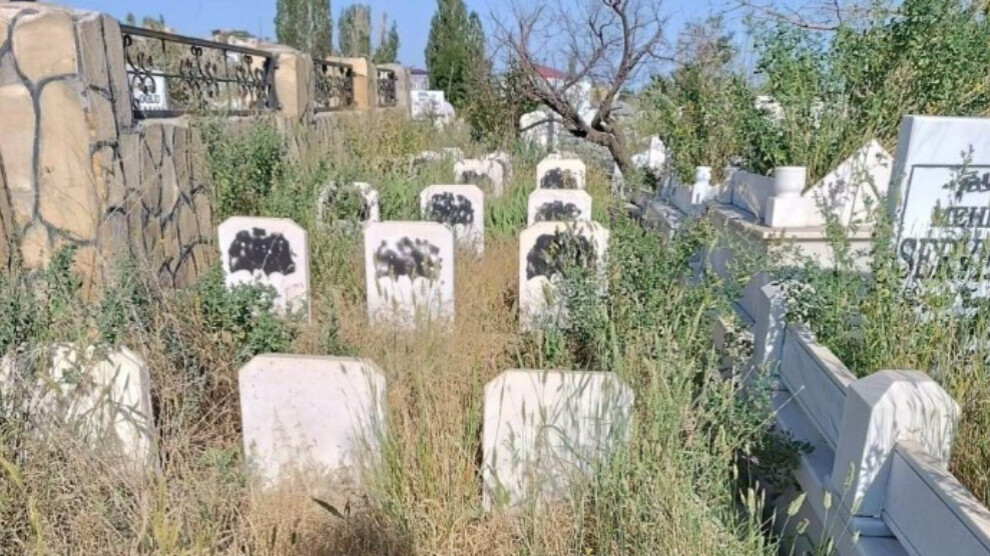Graves of guerrillas desecrated in Doğubayazıt
In recent years, the destruction of the graves of Kurdish martyrs has become more frequent in Turkey.
In recent years, the destruction of the graves of Kurdish martyrs has become more frequent in Turkey.

Graves of guerrillas at Koçkıran Cemetery in Doğubayazıt district of Ağrı were desecrated. According to reports, several gravestones were painted with black spray.
In recent years, the destruction of the graves of Kurdish martyrs has become more frequent in Turkey. In most cases, individual gravesites are the target of attacks by the Turkish army or police, while entire cemeteries of martyrs are also desecrated. The Turkish judiciary does not consider these incidents to be disturbances of the peace of the dead.
Kurdish society experienced the greatest trauma in recent years in connection with the desecration of martyrs' graves at the end of 2017, when the Turkish state ordered the destruction of the Garzan Cemetery of Martyrs in the Kurdish province of Bitlis. The cemetery was located near the village of Oleka Jor (Yukarı Ölek); where nearly 300 members of the Kurdish guerrilla organizations HPG and YJA-Star as well as the YPG and YPJ were buried. After the cemetery was destroyed, their bodies were exhumed on the instructions of the Istanbul chief public prosecutor's office and taken to the forensic medicine department there. They were then buried in the Kilyos Jewish cemetery not far from the seaside resort of the same name at the European entrance to the Bosphorus, in plastic boxes under a sidewalk in a section for "the nameless."
The Turkish state’s war against the dead is not limited to graves. Bodies of martyrs are frequently kidnapped by the state and buried unbeknownst to their families, while some other burials are systematically prevented or the victims can only be laid to rest by the closest family members under a siege and blockade.